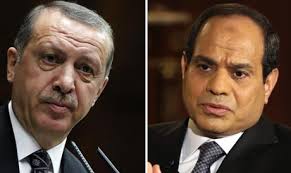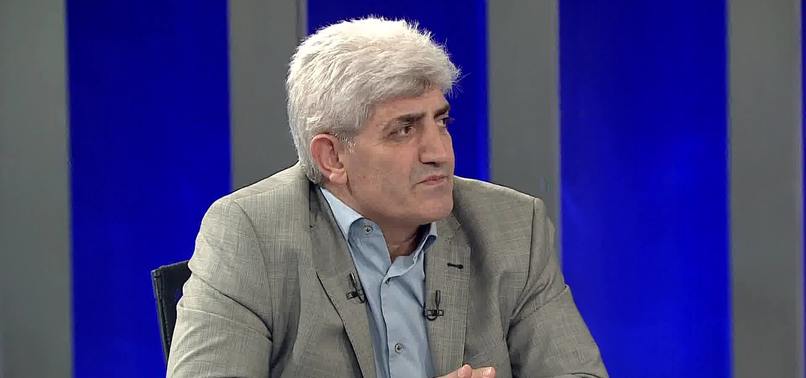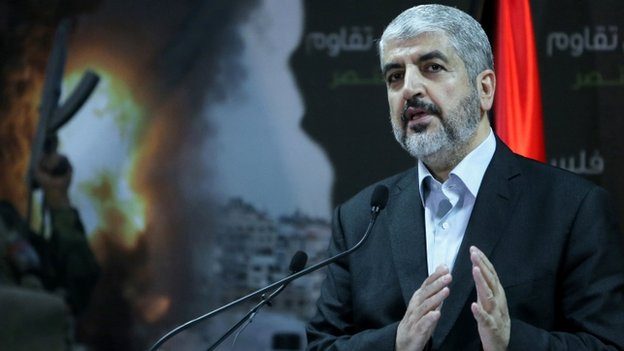
Since the military coup in 2013, the Turkish ruling Justice and Development Party (JDP) or (AKP) has been known for its support for the Muslim Brotherhood and its opposition against the military coup. Ankara had been one of the region’s most dedicated supporters of governments and movements linked to the Brotherhood, including Hamas in Gaza, the former government of Mohamed Morsi in Egypt and sections of the Syrian opposition.
“This strategy has negatively affected its relations with Middle Eastern governments it once considered allies, such as Israel and the Syrian regime of Bashar al-Assad,” wrote the Times. However, there is a shift in the Turkish stance that has been recently reported.
The Times wrote in its article titled: ”Erdoğan Rips up Foreign Policy as Turkey Restores Ties With Egypt” that Turkey is moving to improve its relations with Egypt” in what would be the third significant shift in President Recep Tayyip Erdoğan’s foreign policy in as many days — and the latest sign that Ankara is scaling back its support for the Muslim Brotherhood.”
In the last few days, the Turkish Prime Minister Binali Yildirim said that Ankara was ready to begin talks with Abdel Fattah al-Sisi of Egypt, who came to power in 2013 in a military coup that overthrew the first democratically elected President Mohamed Morsi.
Yildirim also added that there was “no obstacle” from Turkey’s side to restoring relations. “Actually, we are ready. We do not have any reservations,” he said. “(Egyptian ministers) will come; ours will go (to Ankara and Cairo). Businessmen may come; cultural exchanges are possible, military mutual contacts may be reached. These are all possible, there is no problem.”
This statement is the third in Ankara’s shift in forging policy as “Ankara surprised observers by formally reconciling with Israel and sending the biggest signal yet that it wants to mend relations with Russia,” said the Times.
Tel Aviv and Moscow are known for their strong vigorous opposition to the various Islamist groups that Turkey has backed over the past five years.
In response to Yildirim’s comments, the Turkish government said the AKP was “absolutely not turning its back on the Muslim Brotherhood.”
Moreover, Ankara also insisted that Hamas was happy with the reconciliation deal with Israel, under which some humanitarian aid will be allowed into Gaza.
However, the Times reported that there was evidence of discontent among some Hamas members. Khaled Qaddoumi, the Hamas representative in Tehran, referred to the agreement as “normalization with Israel” and thus “pure evil”. He wrote on his Facebook account, “We cannot talk about what some have called the pros and cons of the agreement.”
In 2010, Turkey cut off diplomatic ties with Tel Aviv after Israeli commandos killed 10 Turkish citizens aboard an aid flotilla that was heading to the embargoed Palestinian territory of Gaza.
In the same context, relations between Ankara and the Kremlin have deteriorated after downing a Russian SU-24 fighter jet close to the Syrian border last November.
The Times considered the first sign of the shift in Turkey’s foreign strategy when Yildirim said clearly that Turkey would seek “fewer enemies, more friends” when he made his maiden speech as Prime Minister last month after the resignation of Erdogan’s long-time ally Ahmet Davutoglu.
Regarding Syria, there have been two meetings between representatives of Ankara and Damascus so far this year, as the former enemies seek a common strategy against Kurdish expansionism in northern Syria, according to recent reports.
Aaron Stein, a senior research fellow at the Atlantic Council, said that “This is Turkey accepting the regional status quo.”
He added, “It actually began in March 2015 when Erdoğan met Saudi Arabia’s King Salman and agreed to take a step back from overtly supporting the Muslim Brotherhood. The departure of Davutoğlu has created a space for Turkey to enact its foreign policy changes.”



